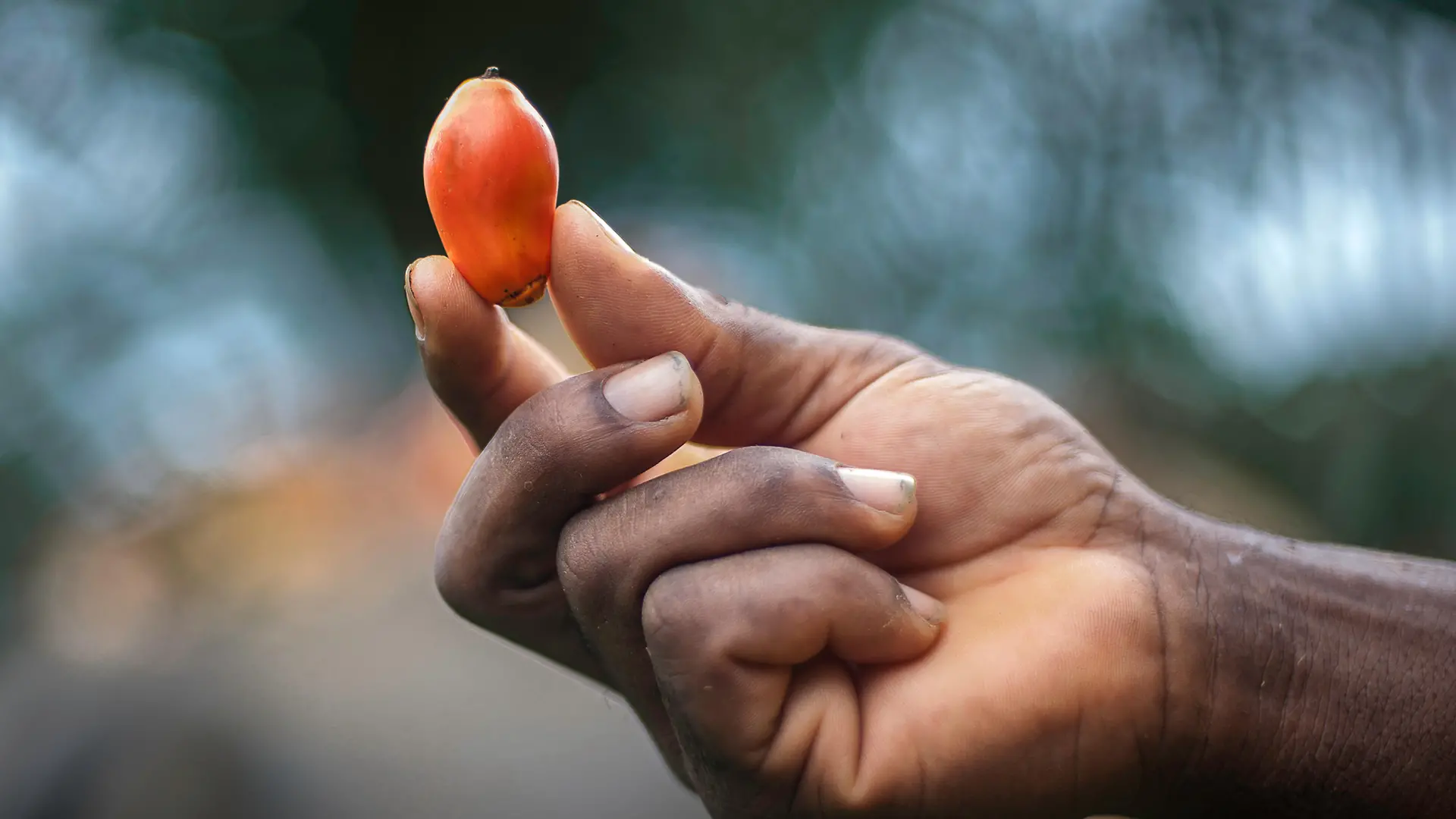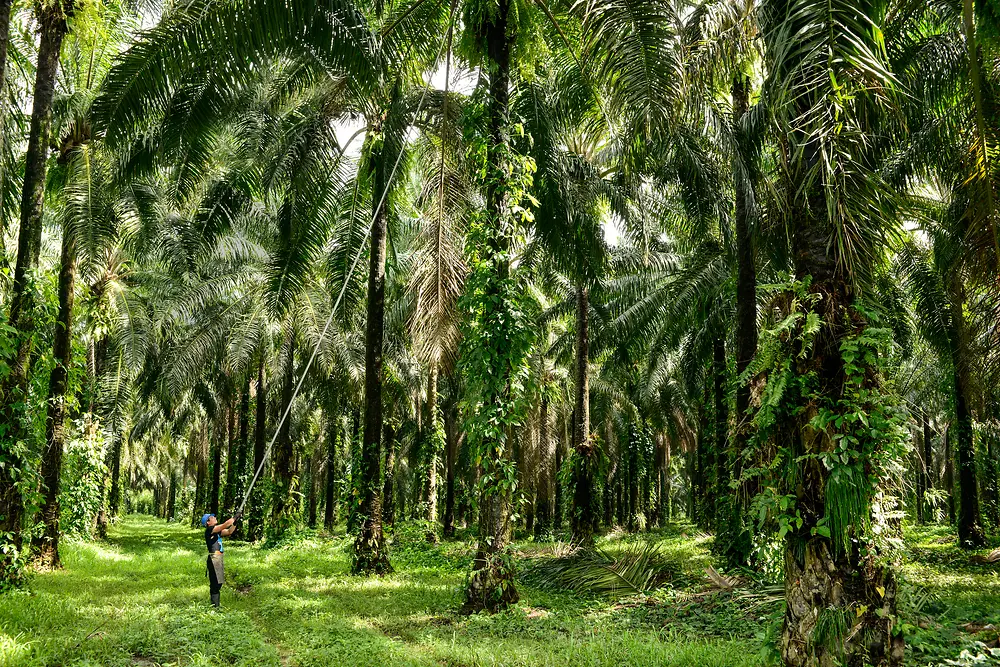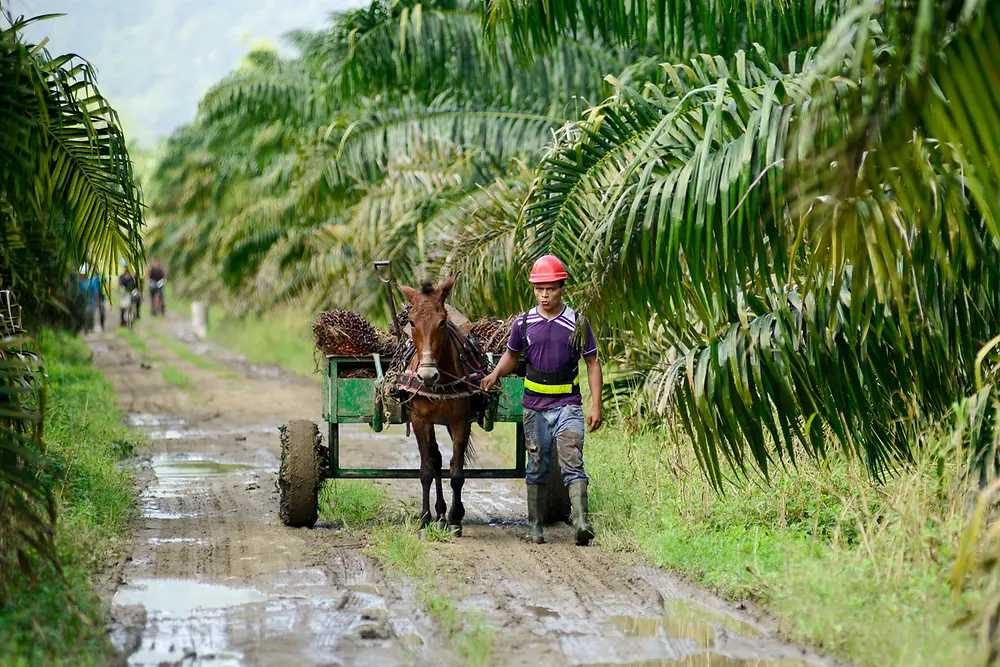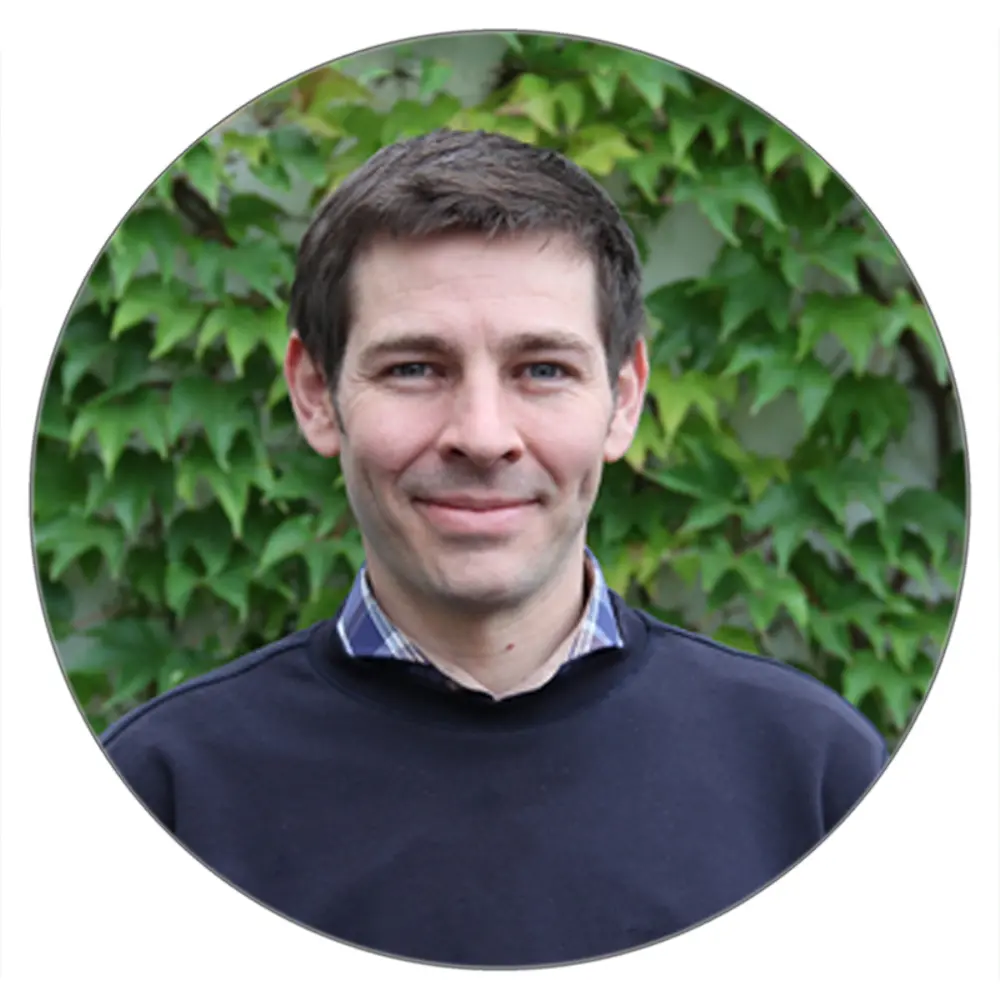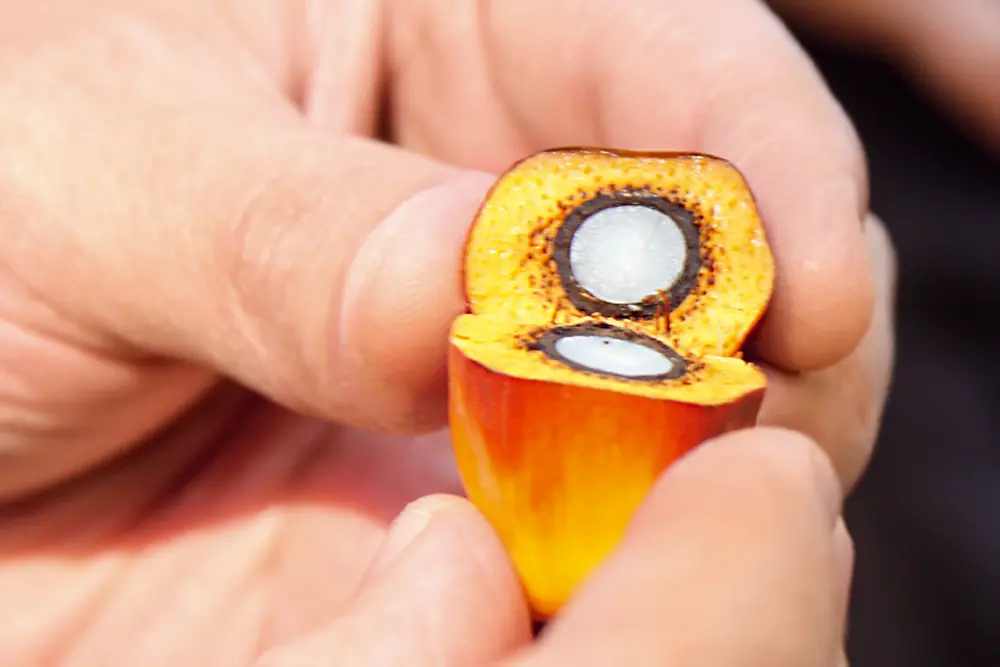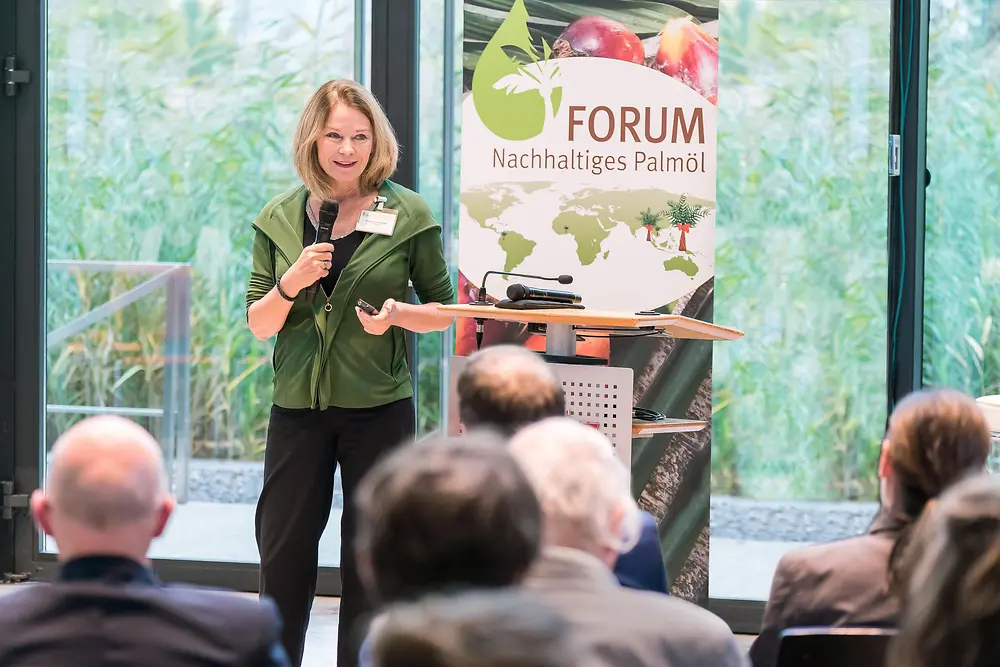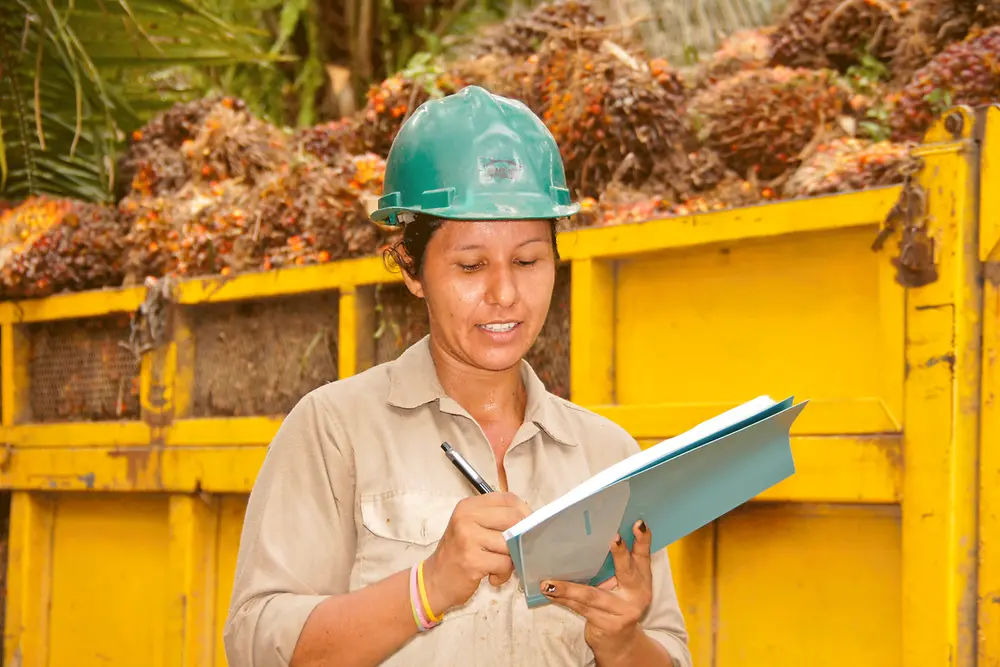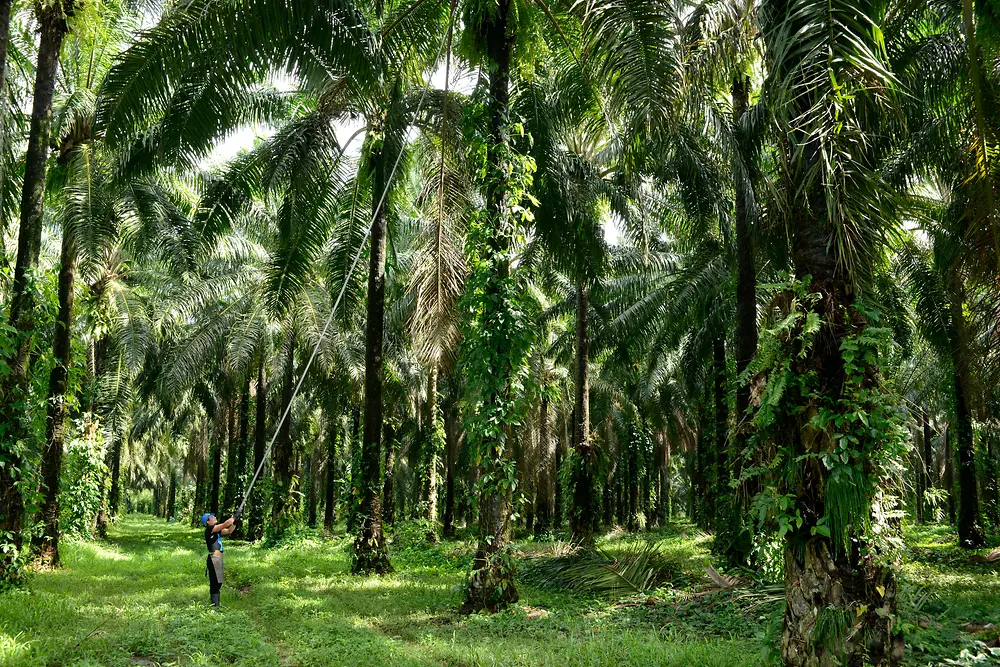What is the difference between palm oil and palm kernel oil? What role do these raw materials play in the production of laundry detergents, household cleaners, body care products and cosmetics?
Christine Schneider: In addition to the positive properties mentioned above, palm oil also has many advantages for laundry detergents and household cleaners. The oil from the kernels is often used for these products – this accounts for around 10 percent of the harvest. 90 percent of the fruit is the pulp, which must be milled into palm oil within a very short time period – one day – as it spoils extremely quickly. The kernels, in turn, are first processed in a type of "crusher" before being chemically processed over several stages to provide us with the valuable ingredients for the surfactants. All products that foam contain surfactants; in this context, they are an almost irreplaceable raw material. The only alternative is coconut oil, but this is by no means as efficient or productive as palm kernel oil and, as yet, there is no certification system available for coconut plantations. For us, palm oil that has been certified as sustainable is therefore the best option.
The palm fruit is made up of about 90 percent pulp, which spoils quickly and must be processed within a day, and 10 percent kernel, which is particularly important for the production of surfactants.
What is the RSPO and why has it been criticized so often in the past?
Moriz Vohrer: The RSPO was initiated by the World Wildlife Fund (WWF) in 2004: The roundtable aims to facilitate collaboration between all of the stakeholders in the industry, such as non-governmental organizations (NGOs), companies, the scientific community and various other participants. Initially, the challenge was to find a common language and develop a mutual understanding as a basis for setting minimum standards and social and environmental criteria. This has taken seven years at the RSPO. Seven years to get the initial set of rules in place. The third version is now available, and many stakeholders are much more satisfied today. As I said, compromises had to be made initially so that the parties involved could reach common ground. However, this common ground has evolved over the years and become much larger.
The partnership between Solidaridad and Henkel has been in place for almost ten years. What are you working on together?
Christine Schneider: Establishing our partnership with Solidaridad in 2012 was an important milestone for us. As we know, 40 percent of the world's palm oil is produced by smallholder farmers. However, when it comes to certification, it's almost impossible for smallholders to meet the requirements and participate in the system. Since certified palm kernel oil is extremely scarce, we wanted to remedy this by increasing the yield of smallholders using their existing plantations and without increasing the amount of land used. We started in Honduras, and now we are active in many other countries in Latin America, as well as in Indonesia, Nigeria and Ghana. In 2013, we co-founded the Forum for Sustainable Palm Oil (FONAP), an organization that follows a similar approach to the RSPO but goes much further in terms of its demands. Meanwhile, two German federal ministries have also become members and contribute to the work of the forum – as strong advocates and partners, they can also cover the political aspects.
It is the goal of the Forum for Sustainable Palm Oil (FONAP), co-founded by Henkel in 2013, to significantly increase the share of sustainably produced palm oil on the German, Austrian and Swiss markets as quickly as possible, while at the same time improving existing standards and certifications. (Photo: Christine Schneider at a FONAP conference in Berlin, 2019.)
How does Solidaridad help smallholder farmers become certified producers?
Moriz Vohrer: What matters most to smallholders is what ends up in their pockets. Otherwise, they will not implement certain elements of sustainable cultivation. However, smallholder farmers often have limited knowledge of the most effective cultivation practices or access to capital that they can invest in improving their holdings. They also face the challenges associated with the growing demand for sustainably grown palm oil and its certification process. One of our goals is therefore to provide training to help them generate more yield, for example more oil per hectare, to help them increase their income. To achieve this, we support smallholders in meeting the required certification criteria, such as those stipulated by the RSPO. In addition to providing direct support to smallholders, by working with RSPO we are also committed to developing regulations that are geared toward small producers and large plantations alike.





